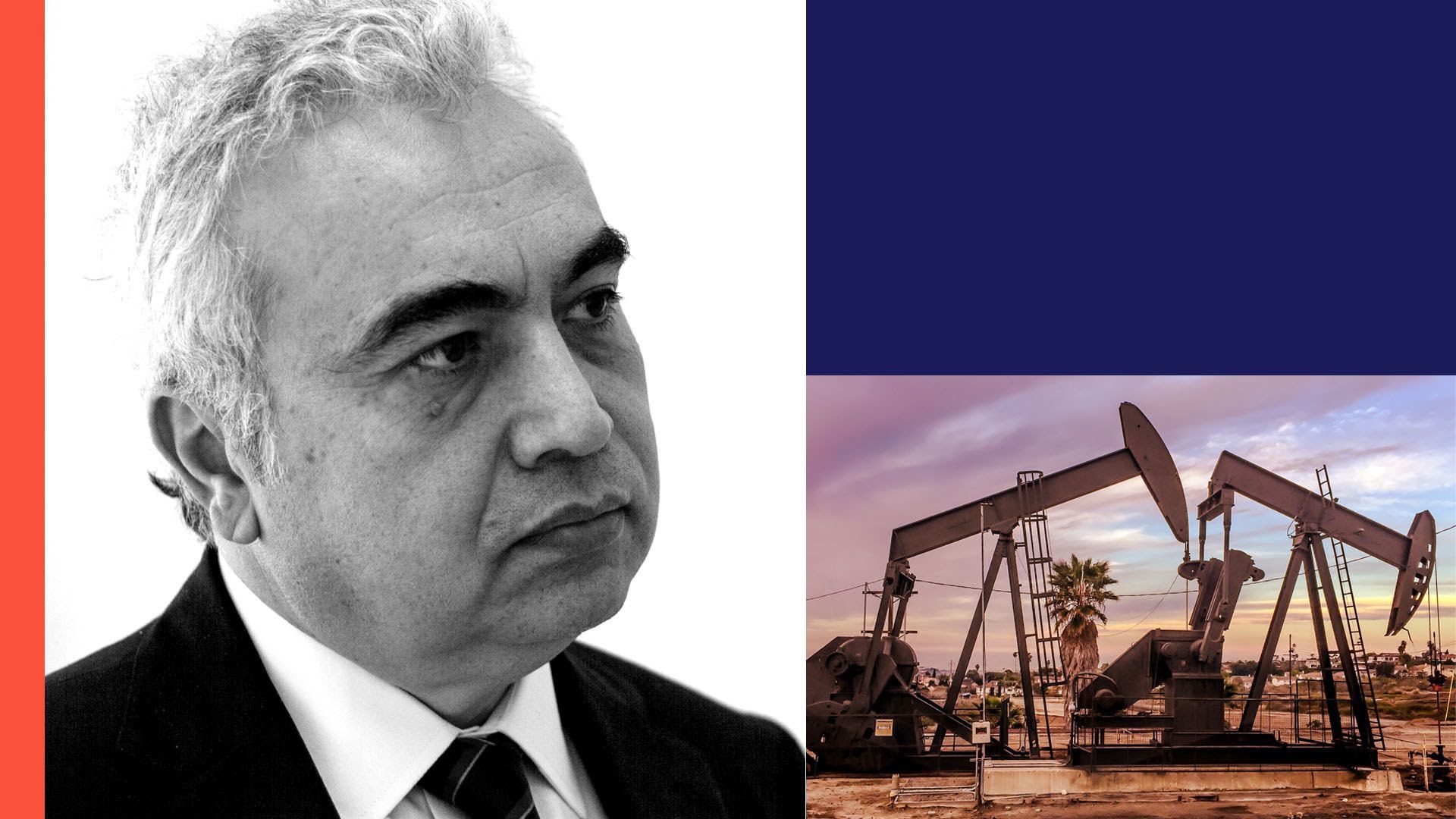IEA boss won't let Big Oil off the hook
Add Axios as your preferred source to
see more of our stories on Google.

Photo illustration: Sarah Grillo/Axios. Photo: Freya Ingrid Morales/Anadolu Agency/Getty Images
International Energy Agency executive director Fatih Birol has a tough job these days — responding to an unprecedented crisis now without losing sight of an existential one that must be tackled over decades.
Driving the news: He spoke to Axios yesterday about his work to help stabilize oil markets and ensure coronavirus doesn't sap governments' and companies' work on global warming.
Climate change: Birol says major oil companies, which have recently been expanding their climate pledges and plans, will remain under the microscope.
- “People around the world will notice whether or not those commitments that the governments, companies [have made] are going to fade away or disappear when the market conditions change,” he said.
- “I think this is a really important issue for the credibility of the companies and the governments,” Birol added.
Oil markets: Birol has been pushing for G20 energy ministers to collaborate on how to handle the shocking collapse in oil demand. That might be bearing fruit. Those officials are now slated to meet remotely on Friday, a day after a meeting of the OPEC+ group led by Saudi Arabia and Russia.
- “This is a huge global challenge,” he said, later adding: “There is a need to provide a global answer beyond OPEC+.” The production cuts reportedly contemplated by OPEC+, which are in the 10 million barrel-per-day range, pale in comparison to the demand collapse, he noted.
- Birol and IEA analysts are keenly aware of the toll that the demand and price collapse will take on people who work in the industry, but he's hopeful about collaboration to manage the twin shocks.
- I asked Birol about how the U.S., where top-down production decisions aren't a thing, and other market economies could take part in a wider cooperative effort. “There are different countries who can contribute to the problem in different ways,” he said.
- He noted plans by companies to cut investment. “As a result of that there will be a lot of decline,” Birol said.
Stimulus plans: Birol has been pushing governments to use their economic response packages to boost investments in renewables, efficiency, batteries and more. He said it's going "very well."
- “We are seeing that there is some hesitation in some countries about whether they should continue to provide support for renewables. We say yes, especially for solar and wind, whose costs are much cheaper than 10 years ago,” he said.
- More broadly, he said it's possible to design packages that "on one hand provide a boost to economic recovery, but at the same time [are] increasing energy resilience and accelerating the clean energy transition."
- Birol noted that this year will bring an "unprecedented" decline in global emissions, but for all the wrong reasons.
- “It is happening because people are dying, economies are melting down, " he said, adding that stimulus responses are important because "we want emissions to come down in order to provide better lives, healthier lives for people."
